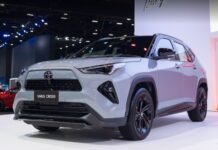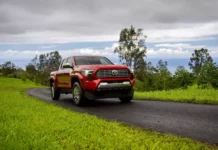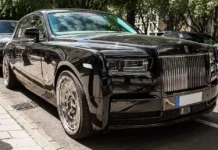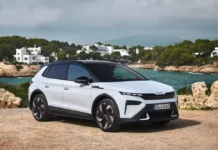
|
According to Motor1, the iconic Hot Wheels toy cars could also become more expensive due to potential tariffs if President Trump follows through on his plans.
This week, the US President threatened to impose a 100% tariff on Mattel, the parent company of Hot Wheels, after its CEO announced plans to diversify manufacturing outside of the US.
“Let them go, and we’ll put a tax of 100% on [their toys]. They’ll be paying a tax on every car they send into the country, and that’s a big tax. And they won’t be able to sell their toys, and this is their season to sell toys,” President Trump told reporters at the White House about Mattel’s CEO’s plans.
The President’s statement was in response to an interview given by Ynon Kreiz, Chairman and CEO of Mattel, to CNBC earlier in the week.
In his interview with CNBC, Ynon Kreiz stated that the company had no plans to move manufacturing back to the US. Instead, Mattel intends to diversify its manufacturing to other countries to avoid the 145% tariffs on Chinese goods. He also suggested that they could simply increase the price of their toys in the US to make up for any losses due to tariffs.
“All of our design, development, engineering, and brand management is done right here in the US. Manufacturing our products in other countries allows us to create quality products at affordable prices,” Ynon Kreiz told CNBC.
|
|
|
Hot Wheels toys could face price increases due to tariffs. |
According to Motor1, Mattel currently manufactures most of its Hot Wheels toys in Malaysia, with some production also taking place in other Asian countries such as Indonesia, Thailand, and China. Only about 20% of their total toy production is based in China. CEO Ynon Kreiz stated that Mattel plans to reduce this number to 15% next year and further down to 10% by 2027.
The Chairman and CEO of Mattel expects to keep the prices of 40-50% of their total toy products sold in the US under USD 20, but he acknowledged the high possibility of price increases due to tariffs.
In response to this, President Trump pushed back, arguing that customers should not have to bear the additional costs of tariffs.
However, as The Independent reports, global economists agree that tariffs ultimately impact customers, as companies are forced to increase prices to make up for the costs of new import taxes.
A similar story has played out in the US auto market, where analysts predict that average selling prices could increase by up to $3,600 per vehicle.
Recommended Reads for Your Journey
Our Cars section offers a diverse range of book suggestions to engage and entertain you during your travels. Whether you’re on a long road trip or just enjoying a quiet moment with your vehicle, these books are sure to enhance your journey.
The Great Ford Exodus: Car Manufacturer Halts Exports to China Amid Trade Turmoil
The American automotive giant has put a hold on shipments of its iconic models to China. Ford F-150 Raptor, Ford Bronco, Ford Mustang, and Lincoln Navigator will no longer be shipped to the Asian market, in a move that is sure to send shockwaves through the industry. This decision comes as a surprise to many, as Ford has long had a strong presence in China, with these models being particularly popular. The question on everyone’s lips is: what does this mean for the future of Ford in China, and will other manufacturers follow suit?
Automobiles Stuck at U.S. Ports Due to Tariffs
The automotive industry in the United States is pulling out all the stops to navigate the challenges posed by the new tariff landscape. With an adept understanding of the market dynamics, car manufacturers are employing strategic maneuvers to mitigate unnecessary costs, ensuring their operations remain robust and competitive in this ever-changing economic climate.













































